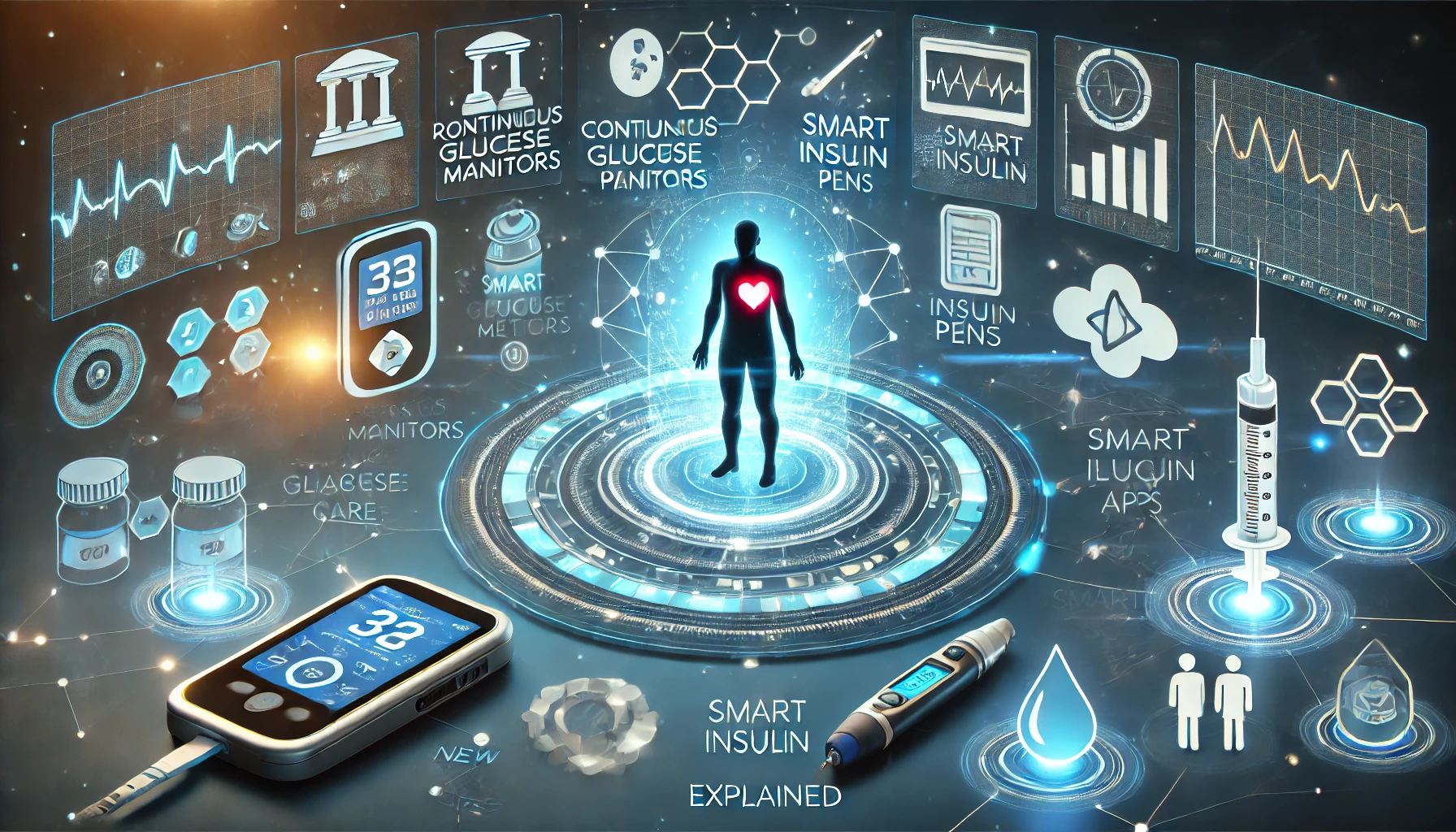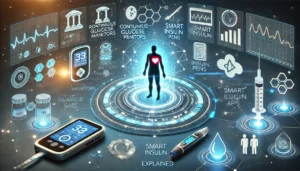Revolutionizing Diabetes Care: New Tools and Technologies Explained
The landscape of diabetes management is witnessing a groundbreaking transformation, fueled by cutting-edge technologies and novel tools. As individuals strive for a healthier and more balanced life, innovative solutions in diabetes care are emerging at a swift pace, offering enhanced precision, efficiency, and personalization. From Continuous Glucose Monitors (CGMs) to Artificial Intelligence (AI), these advancements promise to redefine how diabetes is understood and managed worldwide.
The Evolution of Diabetes Management
Historically, diabetes management centered around routine blood sugar testing, diet modification, and insulin therapy. Although these methods remain integral, the advent of advanced technologies is augmenting traditional approaches, allowing for more nuanced and individualized care. Today, several innovative tools are taking center stage, transforming diabetes management from a reactive practice to a proactive and predictive one.
Continuous Glucose Monitors (CGMs)
Perhaps one of the most significant advancements in diabetes technology is the advent of Continuous Glucose Monitors. Unlike traditional blood sugar testing, which requires frequent finger pricks, CGMs provide real-time glucose level monitoring, offering a comprehensive view of blood sugar trends over time.
- **Real-Time Monitoring**: Continuous tracking of glucose levels helps in making informed decisions about diet, exercise, and medication.
- **Trend Analysis**: By analyzing glucose trends, users can proactively manage their condition, reducing the incidence of hypo- and hyperglycemic episodes.
- **Enhanced Convenience**: CGMs minimize the need for constant manual testing, allowing users to focus more on their daily lives while maintaining optimal glucose control.
Artificial Intelligence (AI) in Diabetes Care
AI is making tremendous strides in the realm of healthcare, particularly in diabetes management. By leveraging vast datasets and sophisticated algorithms, AI is enabling more accurate predictions and personalized treatment plans.
- **Predictive Analytics**: AI algorithms can analyze patterns in glucose levels, lifestyle habits, and other health metrics to predict potential diabetic complications and recommend preventive measures.
- **Personalized Treatment Plans**: Machine learning models can assist healthcare providers in tailoring treatments based on an individual’s unique physiological responses.
- **Healthcare Automation**: AI-driven applications are automating routine processes such as appointment scheduling and medication reminders, enhancing convenience for patients.
Smart Insulin Pens and Pumps
The introduction of smart insulin delivery systems is another game-changer in diabetes care. These smart devices provide real-time feedback and connectivity, ensuring precise and timely administration of insulin.
- **Precise Dosage**: Smart pens and pumps calculate and advocate the exact insulin dose needed, reducing the risk of overdosing or underdosing.
- **Data Integration**: Many devices sync with smartphones and CGMs, enabling users to track insulin administration, glucose levels, and dietary intake in a consolidated platform.
- **Remote Monitoring**: Such devices allow healthcare providers to monitor patient health metrics remotely, ensuring timely interventions when needed.
The Role of Smartphone Apps
Incorporating smartphone technology into diabetes care is revolutionizing how patients interact with their treatment regimens. Numerous apps cater to various aspects of diabetes management, from diet and exercise to medication adherence.
- **Comprehensive Tracking**: Apps offer integrated platforms to log blood sugar levels, insulin doses, meals, and physical activity.
- **Diet and Nutrition Guidance**: Personalized meal plans and nutritional guidance help users maintain a balanced diet, crucial for managing diabetes effectively.
- **Peer Support and Education**: Many apps include community forums and educational resources, enabling users to connect with others, share experiences, and gain valuable insights.
The Future of Diabetes Management Technology
As technology continues to evolve, the future of diabetes care looks promising. Emerging innovations and research are paving the way for more robust and holistic management frameworks.
Non-invasive Technologies
Research is underway to develop non-invasive glucose measurement tools, eliminating the need for needles and enhancing comfort for diabetes patients.
- **Optical Sensors**: These sensors aim to gauge glucose levels by analyzing light absorption through the skin.
- **Breath Analysis**: Scientists are exploring methods to determine blood sugar levels from compounds found in breath, offering a painless alternative to current testing methods.
Integration of Telehealth
Telehealth services are becoming increasingly integrated with diabetes management, offering patients remote access to healthcare expertise and support. This development is particularly beneficial for those in remote or underserved areas.
- **Virtual Consultations**: Patients can consult with specialists from the comfort of their homes, ensuring continuous care and support.
- **Digital Tools and Platforms**: Telehealth platforms often incorporate digital tools, such as glucose monitoring and medication tracking, for holistic patient management.
Conclusion
As we advance into an era dominated by technology, the face of diabetes care is being reinvented. With tools like CGMs, AI-driven insights, and smart insulin delivery systems, individuals living with diabetes can look towards a future of enhanced control and improved quality of life. Embracing these innovations not only streamlines disease management but also empowers patients and health professionals alike to make more informed and proactive decisions. Indeed, the future of diabetes care is hopeful, driven by technology that prioritizes efficiency and human well-being.
“`



